Author – Will Mears
A Few Things the Homeowner/DIY’er Should Consider
Let’s face it, the vast majority of us would be perfectly satisfied owning a minimal amount of cordless tools. Even the most avid do-it-yourselfer might feel as though the only cordless tool they need is a drill. Why spend hundreds on cordless tools when you can simply go corded, often for less money (especially if additional batteries are needed)? A cordless drill is a versatile tool, and one which has perhaps exceeded its corded predecessor in popularity, but many households and workshops continue to tether themselves to the wall outlet when it comes to most other things. Corded tools have some advantages that cordless versions lack—some rapidly diminishing (power and performance) and some which will likely never change (a limitless power supply versus the finite power and life of batteries). So, why should anyone other than professionals and other daily tool users make the switch to cordless tools?
My answer is multifaceted: convenience, diversity, technological improvements, the list could go on. First things first, let’s talk about convenience. Have you ever gone to use a power tool only to realize that the extension cord you grabbed was just a bit too short? Perhaps you need to work outside of the house, far enough away where your best option (being solely dependent on a power supply) would be a generator. Lucky you, there’s the one you bought for that storm a few years ago, but now you realize that you have no gas to run it with. A trip to the gas station resolves that issue and now you can finally tackle the 5-minute project you just spent an hour preparing for. You see, convenience is about more than simply having what works. It’s about having the best tool for the project. Generators are outstanding on job sites, but they are heavy, noisy, and require too much maintenance to seriously consider for the occasional project around the house. By no means do I intend to discount their value as a primary power source when necessary, but I would argue that the value is diminished when they are moved any distance solely to make a couple of cuts in lumber. Granted, the convenience factor can become frustrating with cordless tools unless you possess more than one or two batteries (and keep them charged), however, that is much simpler than remembering to tune up your generator yearly, otherwise risking the chance of costly repairs. While the best tool is sometimes considered the one in the hand, it is hard to argue that a better tool is the one which maximizes efficiency.
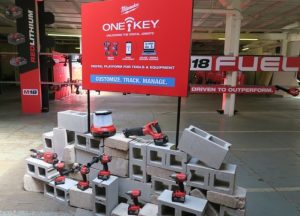 Next up, diversity. Simply put, no other source of power allows the diversity of tool lineups that battery-based systems do. Most would argue that 120v (or whatever standard your country might use) allows for the most diverse tool “system” out there. There are no proprietary batteries to keep charged, and with only a few exceptions, most tools can even share cords. That said, take a look at factor number one: convenience; despite the almost universal compatibility of corded models, they still rely on having a) a power source and b) a cord long enough to reach between that power source and the work area. Many of the major cordless systems offer a variety of tools capable of using the same batteries: job site tools, automotive tools, outdoor power equipment, woodworking tools, metalworking tools, trade tools, and even products like radios, USB chargers, and vacuums. For small projects, I can swap the same battery between a saw, drill, impact driver, blower, and vacuum to accomplish every step. We’ve already touched on relying exclusively on corded tools, now let’s explore the other major option: gas-powered tools. It goes without saying that gas is the king of outdoor power equipment and some specialty tools, but there are virtually no other mainstream tools that make practical use of this power source. Unlike electrically powered tools, I cannot simply switch a cord or battery between tools, and must instead rely on having fuel in each tool as well as the stamina to pull-start a stubborn engine on occasion. Two-stroke engines (which power a large number of these tools) require gas/oil mixture, which if not properly used will damage the engine, and like the aforementioned generator, these tools require regular maintenance to keep them trouble-free. In the end, while convenience can kill the corded tool, a lack of diversity coupled with some of the same inconvenience effectively destroys the gas-powered tool as an everyman’s option.
Next up, diversity. Simply put, no other source of power allows the diversity of tool lineups that battery-based systems do. Most would argue that 120v (or whatever standard your country might use) allows for the most diverse tool “system” out there. There are no proprietary batteries to keep charged, and with only a few exceptions, most tools can even share cords. That said, take a look at factor number one: convenience; despite the almost universal compatibility of corded models, they still rely on having a) a power source and b) a cord long enough to reach between that power source and the work area. Many of the major cordless systems offer a variety of tools capable of using the same batteries: job site tools, automotive tools, outdoor power equipment, woodworking tools, metalworking tools, trade tools, and even products like radios, USB chargers, and vacuums. For small projects, I can swap the same battery between a saw, drill, impact driver, blower, and vacuum to accomplish every step. We’ve already touched on relying exclusively on corded tools, now let’s explore the other major option: gas-powered tools. It goes without saying that gas is the king of outdoor power equipment and some specialty tools, but there are virtually no other mainstream tools that make practical use of this power source. Unlike electrically powered tools, I cannot simply switch a cord or battery between tools, and must instead rely on having fuel in each tool as well as the stamina to pull-start a stubborn engine on occasion. Two-stroke engines (which power a large number of these tools) require gas/oil mixture, which if not properly used will damage the engine, and like the aforementioned generator, these tools require regular maintenance to keep them trouble-free. In the end, while convenience can kill the corded tool, a lack of diversity coupled with some of the same inconvenience effectively destroys the gas-powered tool as an everyman’s option.
On to technological improvements. It is plain to see that most tool companies are focusing on their cordless tool systems at the moment. Tools once thought impossible to go cordless, like large miter saws, table saws, and even routers and belt sanders, are now on the market, with batteries available which are more than capable of supplying such tools with good runtimes. Some companies are relying on battery packs with more amp-hours, while others are creating higher-voltage packs which, in some cases, are compatible with older tools. Even such technologies as Bluetooth—the same one that led to the annoying earpiece fad of over ten years ago (you don’t see people walking around talking to themselves quite so often nowadays)—have been incorporated into some tools, allowing those tools to be customized through apps on our phones. Various tracking systems have been and are being devised that permit us to track the location or status of our tools. In short, the simple cordless power tools of yesteryear have become smarter, in some ways, than the computers we used twenty years ago. Not unlike our vehicles and homes, tools are capable of communicating with us and refining themselves to our unique needs.
So, should cordless tools appeal to you as your only, or at least primary, power tools? Yes, I would say so. By all means, if you can afford to spend thousands of dollars on cordless tools, then do so. After all, what’s not to love about hassle-free, powerful alternatives to running pesky extension cords and pull-starting a cold 2-cycle string trimmer with last years’ fuel in it?
Okay, those are simple and overly short answers to a complex question. Consider tool buying as you would anything else. Do you need a particular tool to be cordless, or do you want it to be? If you need to go cordless for a certain tool, the end will justify the means and paying a small premium will not be wasted. If you merely want a cordless tool, consider whether or not you can truly afford to make the purchase. We all have differing amounts of disposable income, as well as differing hobbies. If, like me, you forego some creature comforts for the sake of expanding a tool collection, then go for it. If buying that tool you may use maybe in a few months or perhaps a year (or two) means ramen noodles for the next six months, it can probably wait. In other words, those wants should be fueled by a hobby and financial responsibility, not an obsession. Sure, tools often retain some value (at least more than some other material possessions), but who wants to go without only to have to sell their tools at a loss?
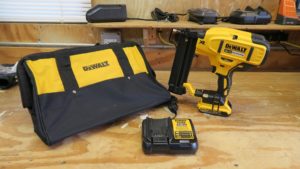 What’s that? Cordless tools have drawbacks? Of course they do. They lack the runtime of comparable corded tools, and will for the foreseeable future. They rely on battery packs comprised of cells which have a finite life and which are sometimes finicky when it comes to temperature extremes. They require at least three serviceable components in order to operate for any length of time: tool, battery, and charger. Some lack features common on their corded counterparts, such as orbital modes on reciprocating saws, while other tools still require a hose connection for dust collection. As technology improves, manufacturers are known to abandon—or at least gradually withdraw from—established battery systems. While many AC-powered tools from the first half of the 20th century are still operable today (albeit not optimally safe compared to newer models), the same will very likely not be said of today’s cordless tools in 50-100 years. Let’s not forget that cordless tools can be expensive as well, with bare tools (requiring a battery and charger to be purchased separately, if not already owned) sometimes costing more than their corded counterparts (which are ready to go out of the box). All things considered, however, I feel as though the downsides of cordless tool systems are outweighed by the sheer joy of owning and using them. I, for one, thoroughly enjoy tackling projects without having to drag out cords which I’m prone to tripping over, or which inevitably get pulled out of the socket at the most inopportune time, requiring me to cease what I’m doing to plug them back in. I like having the choice of whether to use a compact battery to cut down on size and weight or a high capacity battery to be able to work all day on a single pack. Admittedly, I also don’t mind having to stop on occasion to swap out and/or charge batteries, as this reminds me that taking a break is rarely a bad thing.
What’s that? Cordless tools have drawbacks? Of course they do. They lack the runtime of comparable corded tools, and will for the foreseeable future. They rely on battery packs comprised of cells which have a finite life and which are sometimes finicky when it comes to temperature extremes. They require at least three serviceable components in order to operate for any length of time: tool, battery, and charger. Some lack features common on their corded counterparts, such as orbital modes on reciprocating saws, while other tools still require a hose connection for dust collection. As technology improves, manufacturers are known to abandon—or at least gradually withdraw from—established battery systems. While many AC-powered tools from the first half of the 20th century are still operable today (albeit not optimally safe compared to newer models), the same will very likely not be said of today’s cordless tools in 50-100 years. Let’s not forget that cordless tools can be expensive as well, with bare tools (requiring a battery and charger to be purchased separately, if not already owned) sometimes costing more than their corded counterparts (which are ready to go out of the box). All things considered, however, I feel as though the downsides of cordless tool systems are outweighed by the sheer joy of owning and using them. I, for one, thoroughly enjoy tackling projects without having to drag out cords which I’m prone to tripping over, or which inevitably get pulled out of the socket at the most inopportune time, requiring me to cease what I’m doing to plug them back in. I like having the choice of whether to use a compact battery to cut down on size and weight or a high capacity battery to be able to work all day on a single pack. Admittedly, I also don’t mind having to stop on occasion to swap out and/or charge batteries, as this reminds me that taking a break is rarely a bad thing.
So, ultimately it is up to you as the consumer to take a step back, assess your needs and wants, and consider whether the appeal is worth spending your hard-earned money. Is the risk worth the reward? Will the satisfaction of owning the latest and greatest in cordless tools outweigh any potential buyer’s remorse? As with many things in today’s world, one simple question leads to many more. Only you can determine whether or not cordless tools are worth the investment.

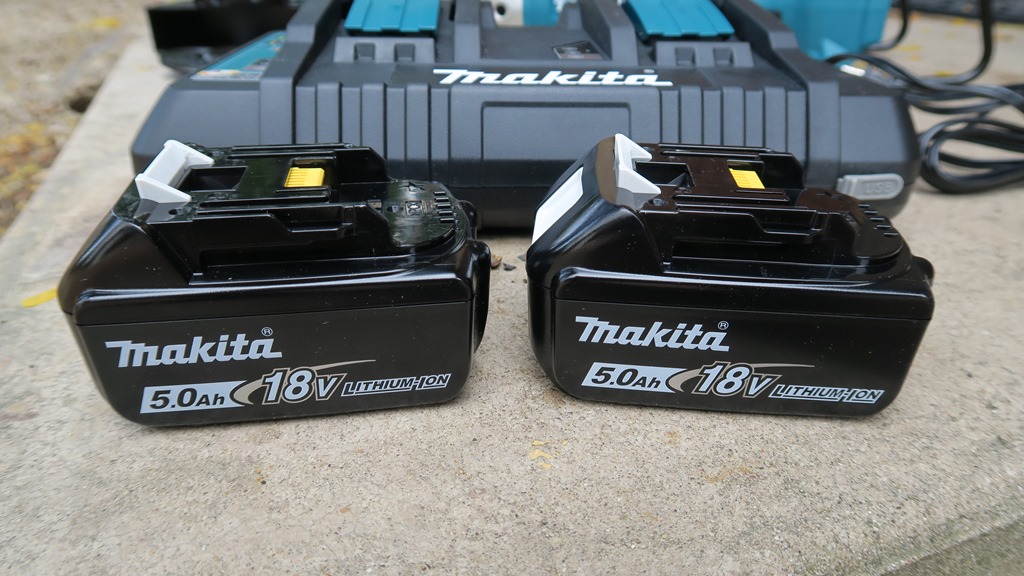

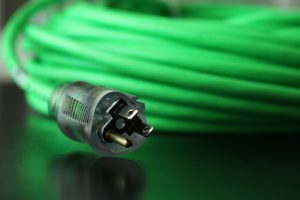
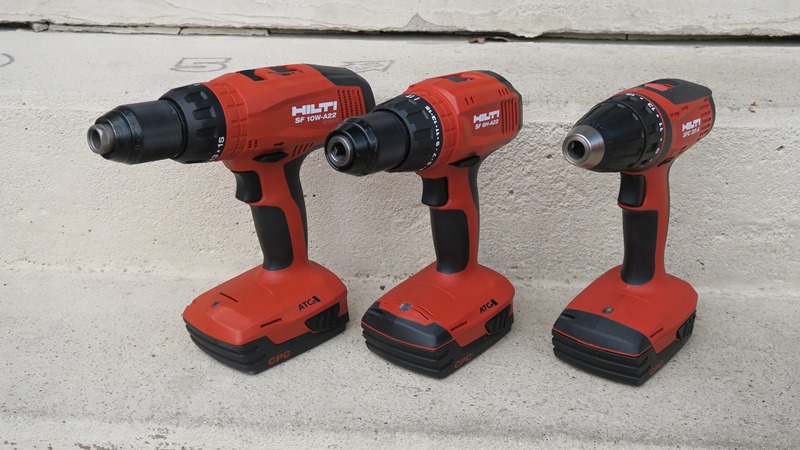
I’m a tradesman , not a DIYer . Even if I was , I would still be mostly cordless. I’ve been on a number of sites , which had only unstable and limited power , and few outlets . Without cordless I would have been totally up a creek , ditto fo jobsite lighting .
Good points
Chris,
I too would be unable to work without a mostly cordless assortment of tools. While I am a DIY’er, I have a house that is without power I am renovating as well as unique work situations where cordless lighting and other options are of immense benefit. When I used tools for a living, I would have been very happy to have the options that are available today.
How spoiled we’ve become in just a few years. I’m pretty new to using tools professionally, but in less than half a decade I’ve seen (and been a part of) a wholesale conversion from using corded tools as a default to the point where virtually nothing portable on my jobsite isn’t battery-powered. Heck, even my stationary equipment like miter saws, if I had to buy again in today’s market, might be driven by batteries.
If you choose just one or two platforms to buy into, amassing a handful of battery packs to always have a few at the ready is no problem – at least it’s less of a problem for me as a general maintenance guy if I need to cut some 2x4s but my helper has the breakers shut down while he’s replacing a light switch or wiring up a new ceiling fan. The key is assessing who’s got the best tool selection for your industry – I find Milwaukee has a broad reach that matches the wide range of everyday tasks I might take on, while Ryobi has some nice cheap options for jobs I might only tackle a few times a year. If I were strictly focused on new construction, though, DeWalt or Bosch might get the nod.
Regardless of where you end up, it seems cordless is undoubtedly the future, particularly for pros who anticipate replacing daily-use tools every few years – if today’s battery platforms aren’t supported in 20 years it’ll make little difference to the guy who’s gone through five impact drivers over that time. What that says about how we’ve been conditioned to look at things given the current state of disposable, planned-obsolescence everything is another matter…
Well said and thanks for the feedback.
I never thought about being selective about which tools need to be cordless and which ones need a cord. My husband and I are moving into our new house soon and didn’t know whether we should use cordless tools or not. I’ll have to sit down with him and see what really needs to be done in our new house and what tools we’ll need.
Ridiculas , house have been built and many tasks done to perfection with CORDED tools ! And before that hand tools ! I would argue that the craftsmanship before corded was some of the best I have ever seen ! Being a professional remodeler and carpenter , I work on many 1800 era homes and always marvel at the craftsmanship and how dead level every 2×4 is ! But I digress, Of course I can get my days work done in corded tools, sure we have become spoiled so much that cordless tools have made us simply lazy now ! We just dont feel like plugging in ! I have my share of cordless tools that I use regularly however there are a few I won’t use , a cordless table saw is at the top of that list . I will stick with my corded dewalt jobsite saw and I’m perfectly happy doing so, usually the saw stays in one location all day anyway ! And oh by the way you still need an outlet with corded as you will need to charge batteries all day ! Also douhg trim work, I prefer a corded compressor , I like small nail guns for that work and the monstrous cordless brad guns drive me nuts ! I have no issue completing my work with my corded tools. Most used cordless tools for me are drills . Are they convenient? Absolutley but there is still a place for corded tools ! And laziness is a bad excuse , I know of no house or job I cant build with corded tools !
Yes cordless tools are must have save money on gas & electric equipment plus if use properly last for years but must know what right brand to trust& fits job. Like good power tool company’s reliable DeWalt, Milwaukee, Portor Cable & Ridgid all which I use never gave me problems either.
Very good companies.